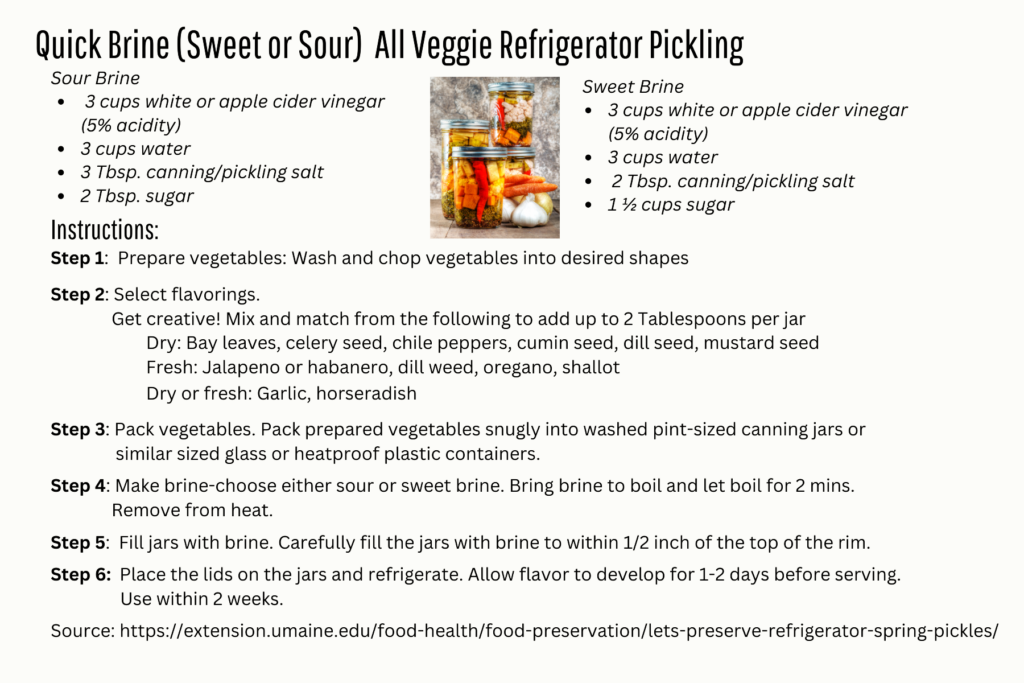Quick! Get yourself in a pickle and chill!

The hot, fast spring-into-summer weather with some gully-washer rains have propelled us into major harvest time already. This is that sweet spot for the vegetable gardener. When harvest is anticipated then welcomed — before it all becomes too much.
That is why our precious summer produce is so treasured. Because some of it just can’t keep for long, at least not keep fresh. There is a great revival of interest in canning, but that is also a true labor of love to do it right. So, is there anything else we can do to preserve the harvest? Yes. Quick pickles!
And I just don’t mean cucumbers here, but any fresh vegetable or fruit. Heck, you don’t even have to have grown it; even high-quality grocery store leftover produce can be quick-pickled.
As I always do when I want to write about food preservation, I consulted with my friend and colleague: University of Illinois Extension Educator in Food and Wellness, Mary Liz Wright, for some great recipes and more importantly, the most up-to-date safe preservation procedures.
Mary Liz related that food waste is a serious problem in the US. In fact, it is estimated that the average family of four throws 30% of their food away. What can you do about it? PICKLE! That’s right, you do not even have to garden to make pickles.
Any fruit or vegetable can be preserved in acid brine. Just a few veggies left on that relish tray — throw them out? No, make refrigerator pickles. It’s quick, it’s easy, and it helps solve our food waste problem. And which one of us can’t use a few more vegetables in their diet?
Refrigerator pickles can be made in minutes and although not self-stable (meaning they can’t be left out at room temperature like water bath or pressure canned foods), they will keep in your refrigerator for 3-4 weeks. Mary Liz offered these great quick pickle recipes with several amazing options.
This is also a good time to talk about your mid-season vegetable garden as a whole. I see more and more people who, once they have had enough of their garden produce, start to pull it out, as early as August. I know those long, hot late-summer days make it easy to do that, but why not continue to grow and share your abundance by donating fresh produce to neighbors (who want it)? There is always the joke about overzealous gardeners checking for open car doors so they can toss a zucchini in.
Fresh produce for us gardeners is a given, but for people who can’t — maybe they used to garden but aren’t physically able anymore, or maybe they live where they aren’t allowed to plant. Many of our communities also have food pantries. The key is to check first to see if your pantry takes fresh produce. Some have very little space, and it is relegated to shelf stable items.
It is also important to check with a pantry to see their open dates/times. You want to pick your donation produce that morning whenever possible. I also like to make a few copies of a favorite recipe to include, particularly if the donation is more of an ingredient like zucchini or onions, than an eat-on-its-own vegetable.
Gardening is such a gift — to those who grow it, and those who benefit from it. I am constantly surprised how many people these days haven’t ever grown something to eat, not even once. I consider myself very blessed that it was a natural part of my (and probably your) childhood.
